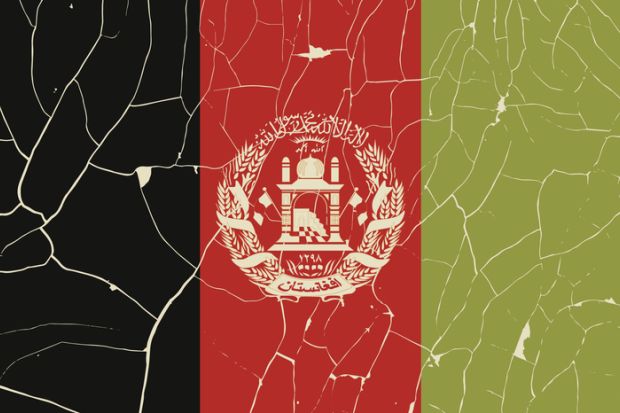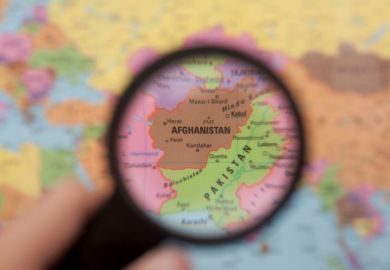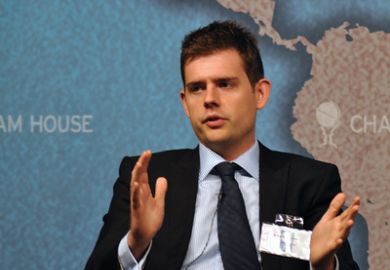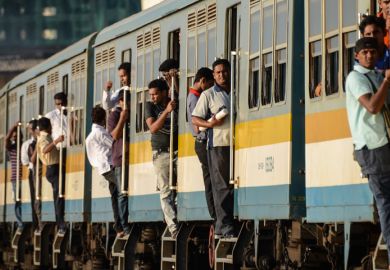The unexpected political upheaval that occurred in mid-August, as the Taliban swept into Kabul, has undermined not only current economic conditions in Afghanistan but also the country’s educational foundations.
When the Taliban first took over, people were to some extent optimistic because it at least marked the end of four decades of war, imposed by foreign powers. However, after four months of chaos, it seems that people are losing their hopes of a prosperous and self-reliant future for their country.
In their initial media statements, the Taliban signalled their commitment to the continuation of education at all levels. But although primary schools are now open for both boys and girls in most areas of the country, secondary schools are still only open for boys; girls are told to wait until the Taliban has finalised special Islamic rules for secondary education.
Some private universities have responded to the new government’s calls for higher education to avoid co-education if possible, using curtains to divide male and female students (who must also cover their heads) in classrooms. But such measures have stoked tensions, recalling the draconian rules imposed by the Taliban during their first period in power 20 years ago, during which women and girls were offered only very limited education and excluded entirely from public life.
Meanwhile, there is still no sign of public universities opening. The acting minister of higher education claimed there are not sufficient funds for students to resume their studies – even the thousands of final-year undergraduates waiting to take their exams. Apparently, there is no money either to pay university lecturers; this is the fourth consecutive month they have gone without pay, Moreover, even amid high inflation in the basic staples of life, the ministry of finance recently announced reduced pay scales for Afghan civil servants, including academics – despite previous promises to maintain lecturers’ salaries.
This isn’t the only bad news for Afghan academia. Lecturers have also been dismayed by the Taliban’s appointment of people with no academic background to university chancellorships and vice-chancellorships, as well as to key positions in the Ministry of Higher Education. The fear is that such inexperience at the top will lead to the unravelling of all the hard-earned progress achieved by the sector over the past 20 years.
Such blows to academic freedom and rights are prompting resignations among senior academics, including the leaders of public universities and deans of their faculties. This has further increased the anxiety among academics, students and, indeed, the wider public about the future of this war-torn country.
Nor are the thousands of Afghan students who are studying at universities abroad immune from the chaos. In particular, most of the master’s and doctoral scholars were funded by the ministry, as well as by international donors, such as the World Bank. However, the World Bank has halted its financial aid and the ministry has stopped its funding, plunging the future of those students into uncertainty. Indeed, most of Afghanistan’s expatriate master’s and doctoral students have already withdrawn from their studies after the Taliban government announced that it was unable to finalise a plan to fund their scholarships amid the financial pressures it is facing. The continuing decline in the value of Afghanistan’s currency only exacerbates this situation.
The economic challenges Afghanistan now faces mean that domestic students, too, are struggling to pay for their studies – never mind support their families, as most are also expected to do. This threatens to undermine the business model of the private universities; they can’t pay their lecturers’ salaries with so few students able to pay their fees.
On social media, academics and students alike share their happy memories of student life as it used to be. The Taliban have professed support for higher education, so we hope that those memories may yet become the reality once more. But we are all still waiting for the promised help to materialise.
We all just hope that things start to get back to relative normality in Afghanistan as soon as possible.
Rahmatullah Katawazai is a lecturer at the Faculty of Languages and Literature at Kandahar University, Afghanistan.
Register to continue
Why register?
- Registration is free and only takes a moment
- Once registered, you can read 3 articles a month
- Sign up for our newsletter
Subscribe
Or subscribe for unlimited access to:
- Unlimited access to news, views, insights & reviews
- Digital editions
- Digital access to THE’s university and college rankings analysis
Already registered or a current subscriber?








